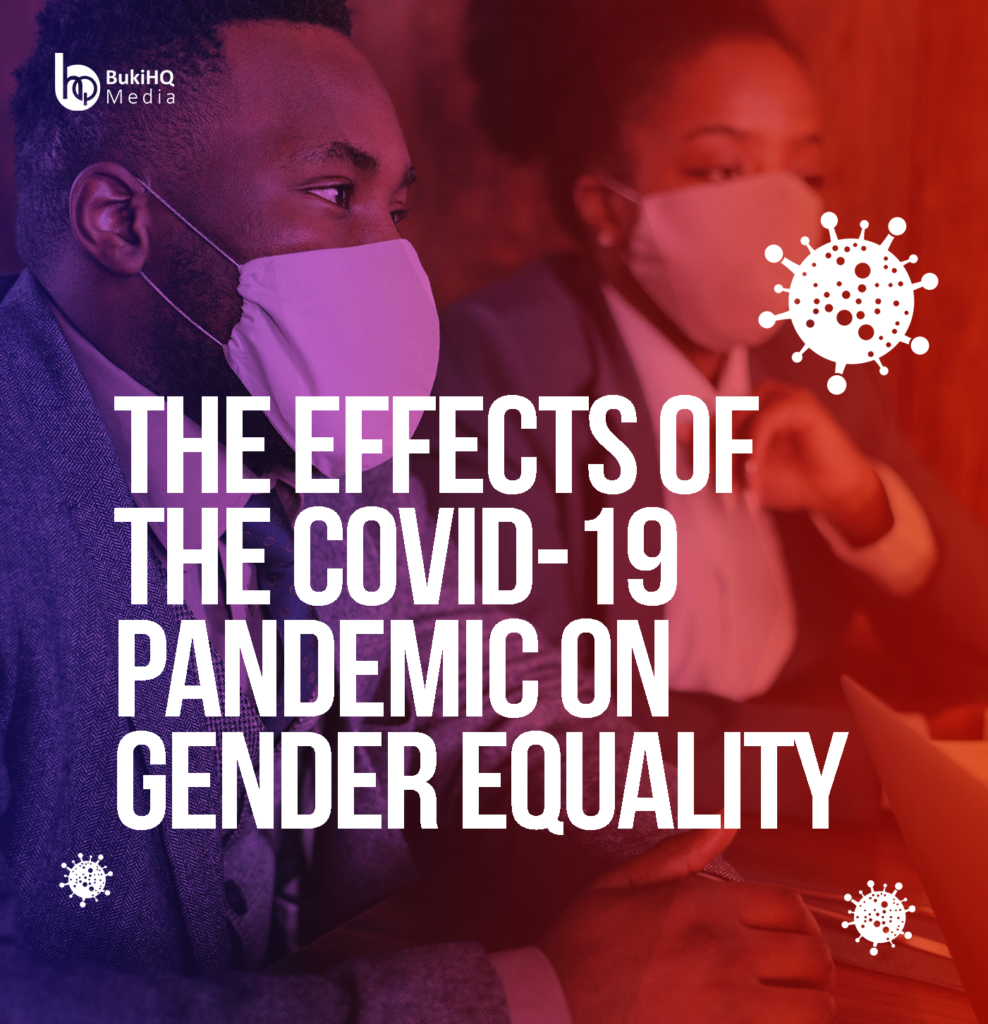
While most people’s lives and work have been negatively affected by the COVID-19 crisis, analyses have shown that, overall, women’s jobs and livelihoods were more vulnerable to the pandemic. The magnitude of the inequality is striking and research has proven that women’s jobs are 1.8 times more vulnerable to this crisis opposed to men’s jobs. Women make up 39 percent of global employment but report for 54 percent of all inclusive job losses.
The major reason for this greater effect on women is that the virus significantly increased the burden of unpaid care, which is inordinately carried by women. This, among other factors, revealed that women’s employment dropped faster than average, considering the fact that women and men work in different sectors.
In addition, traditional gender roles ascribed to women often means that they are primary care-givers for sick family members, a situation which exposes them to the risk of contracting and transmitting the coronavirus. At the same time, many women and girls living in rural areas, poor urban settlements and IDP camps often have limited access to reliable information and adequate healthcare.
Meanwhile, as primary care-givers for sick family members, women’s access to accurate and reliable information and their access to adequate healthcare is critical, to enable them to protect themselves and their families from the virus.
Moreover, women and girls are at greater risk of experiencing increased gender-based violence including domestic abuse, as a result of prolonged periods of confinement within homes and increased tensions within households due to economic hardships. Police reports from China suggest a threefold increase in domestic violence since the COVID-19 outbreak began.
Furthermore, the front-line health professionals and workers most exposed to the infectious diseases are likely to be women: nurses, nurse aides, teachers, cleaners and those providing care to the sick, though they are very often not at the forefront of decision-making in the management of health crises. This is even more so for the most marginalized women and girls, including women with disabilities, women in IDP camps, prisons and detention centers.
Yet, understanding the specific needs and vulnerabilities of different categories of women and drawing on their contributions to shape planning response interventions and resourcing is necessary for attaining sustainable outcomes. Evidence from previous disease outbreaks demonstrates that the availability of data that addresses the gendered dimensions of the outbreak supports the development of more effective policies and solutions to protect the interest of the female gender.
In alleviation of the challenges that the Covid-19 pandemic pose on women, we believe that unlocking global opportunities post-covid for women-led businesses will serve the interest of gender equality in the society. Women-led businesses have a key role to play in ensuring that the global reshaping, post covid, involves policy landscapes, government corporations and the international community which will lead to a full sustainable economic recovery.
The pandemic might have put the nail in the coffin towards any aspiration of gender equality but since the emergence of vaccines, open borders and covid restrictions being laid off, the idea for general improvement of the livelihood for women globally will not appear as a mirage any longer and so shall the reality of equality live.

